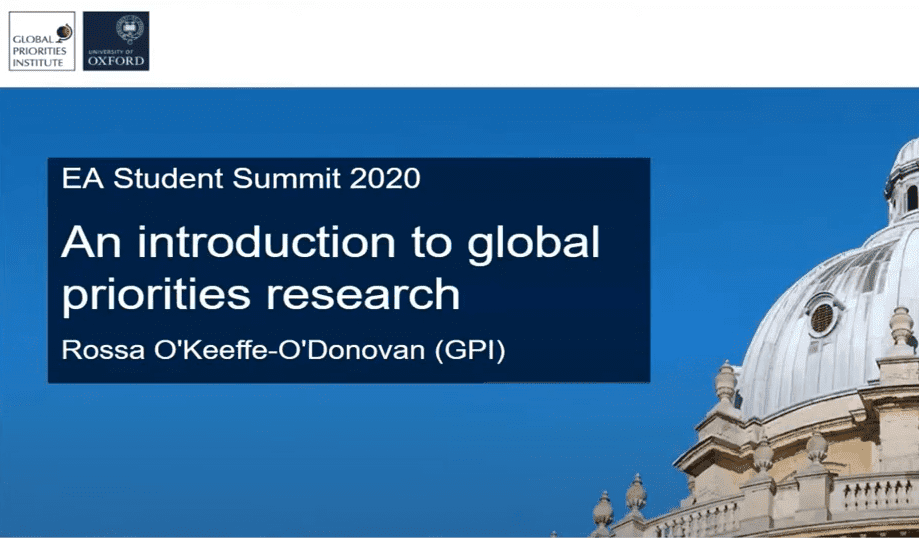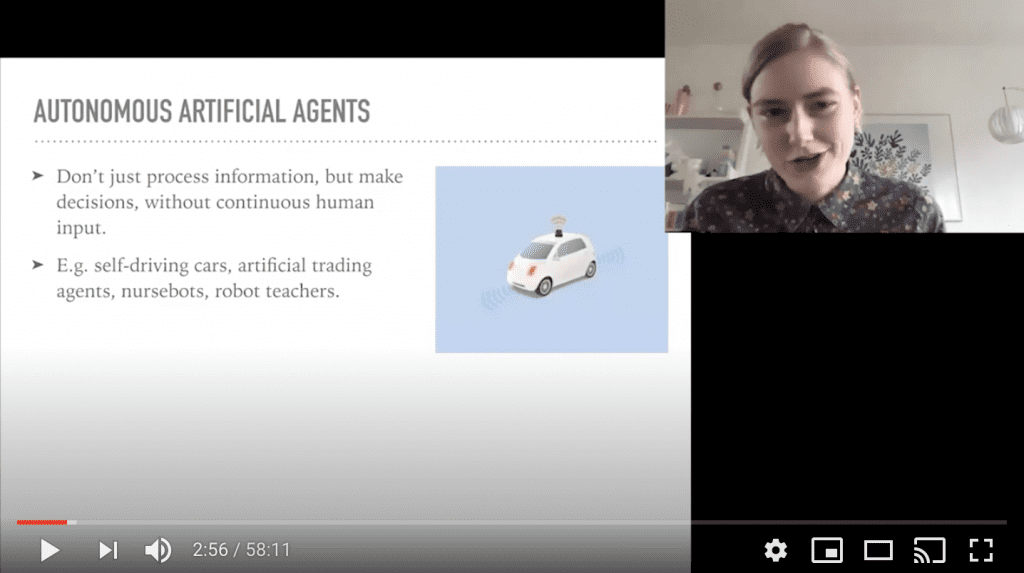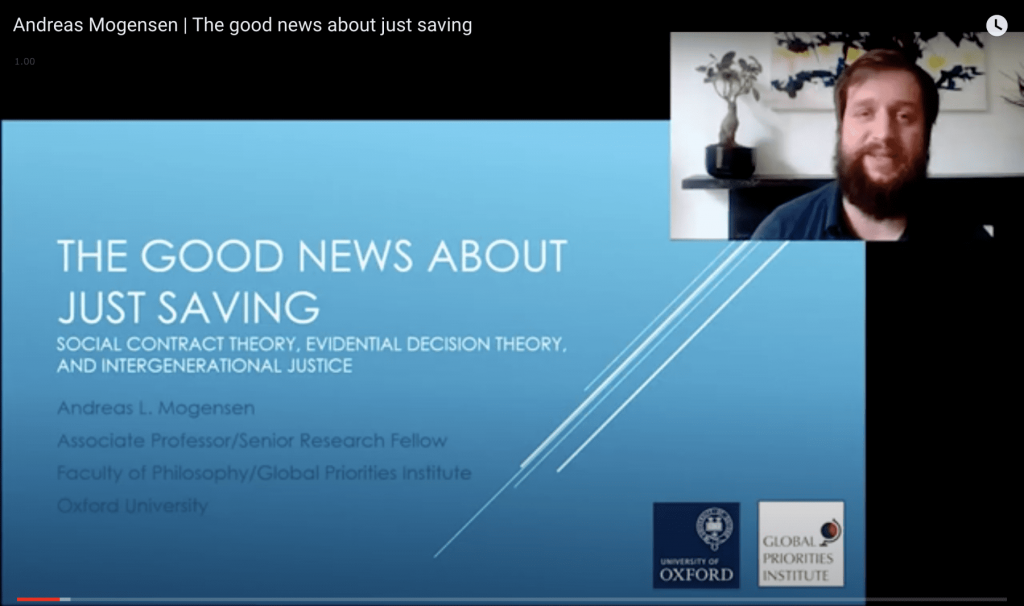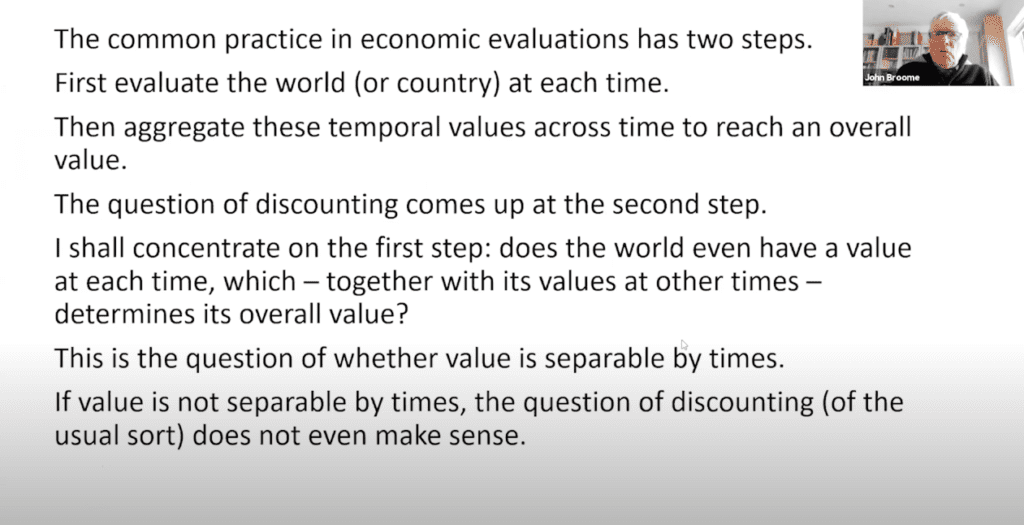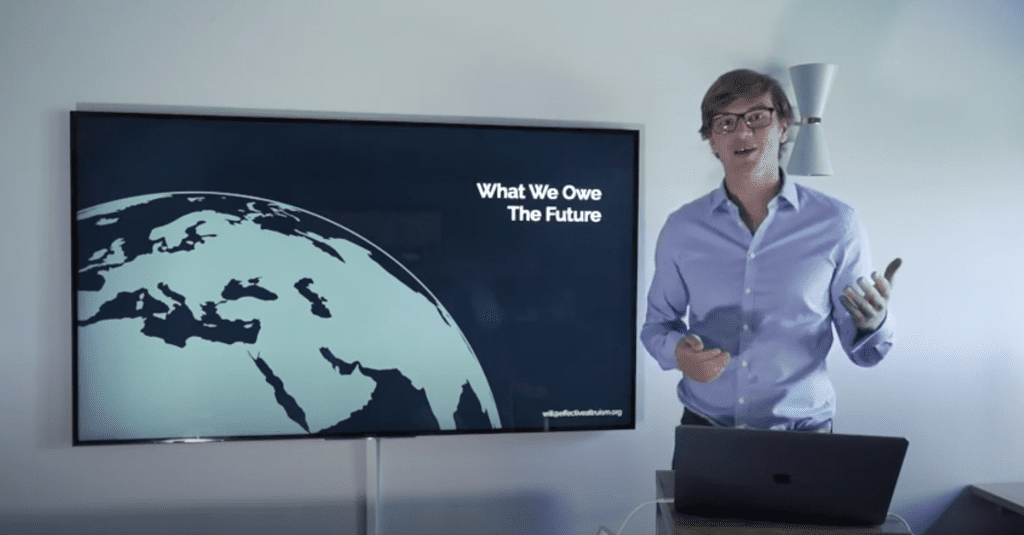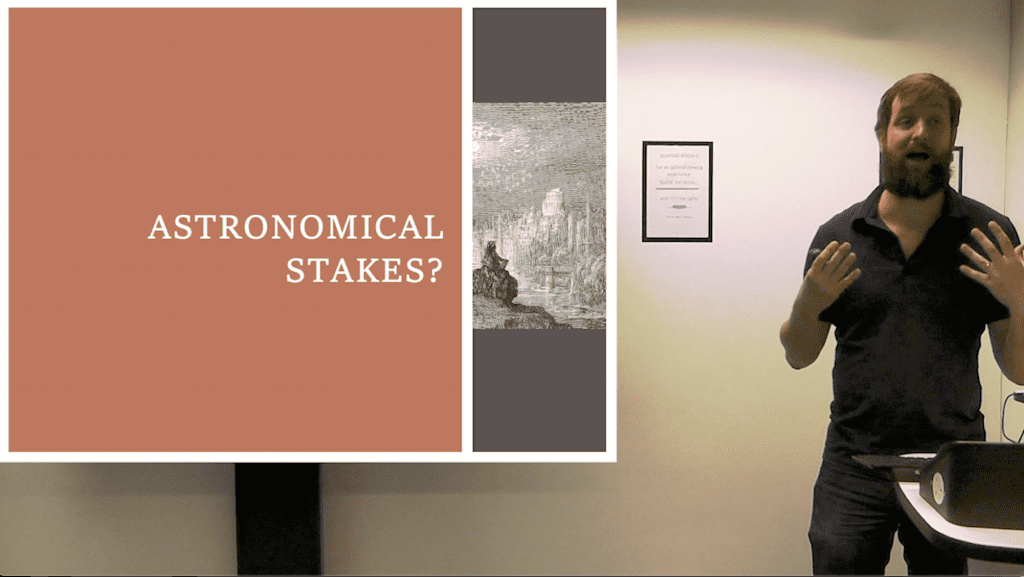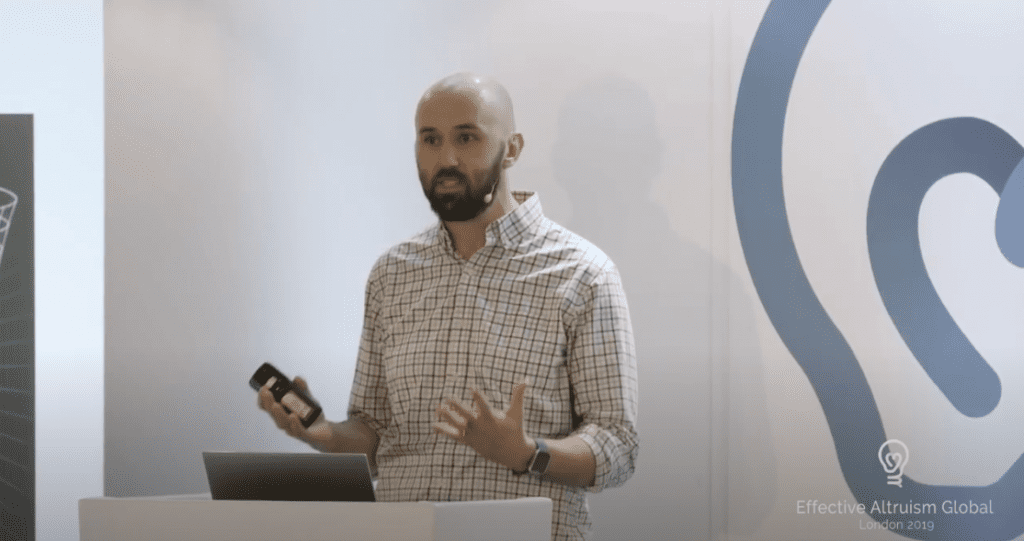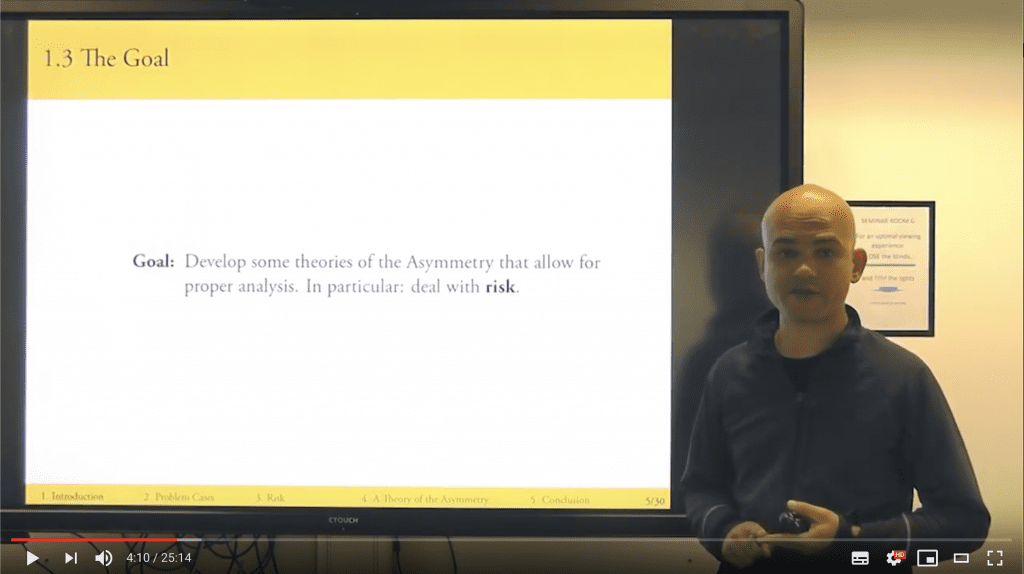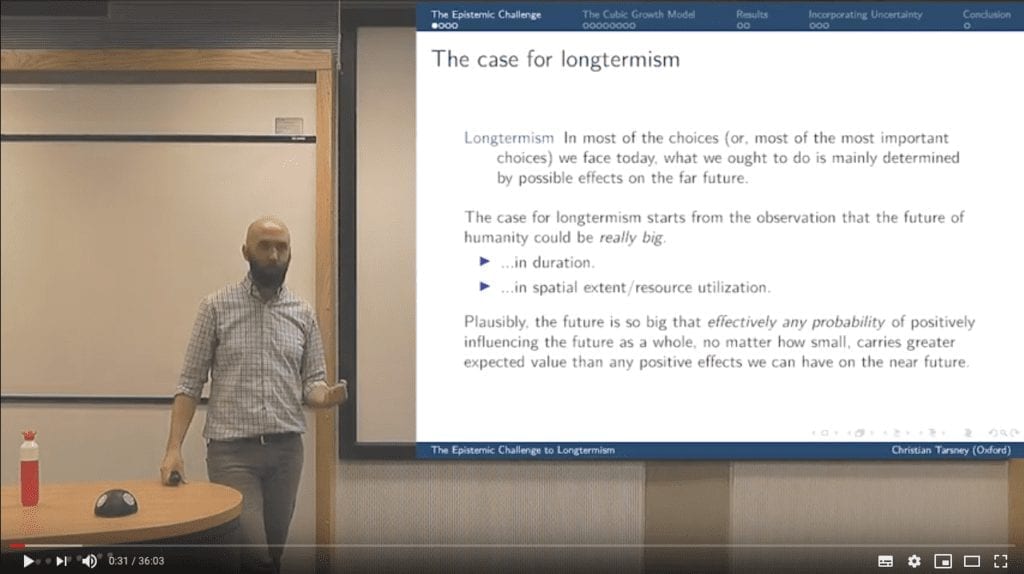Rossa O’Keeffe-O’Donovan | An introduction to global priorities research
Rossa O’Keeffe-O’Donovan | An introduction to global priorities research Presentation given at Effective Altruism Student Summit October 2020 View the transcript here. Other videos Hayley Clatterbuck | Difference making risk aversion 21 February 2024 Katie Steele | Reasons and Caution in Moral Deliberation 13 June 2023 Christian Gollier | The economics of discounting and carbon […]

